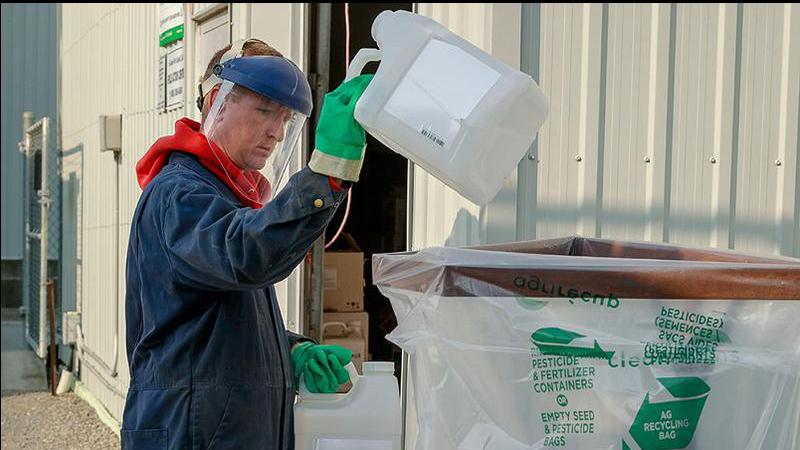
Canadian farmers continue to recycle agricultural plastics
MELFORT, SK – Canadian farmers are committed to recycling empty agricultural product containers used for pesticides and fertilizers.
Cleanfarms developed the programs to help producers manage these products. The national stewardship organization compiled data on the recovery rates for agricultural packaging collected for recycling or safe disposal last year. The recovery rate measures the percentage of containers collected for recycling compared to the number of containers sold into the market in a given year.
Farmers returned 77 per cent of the containers sold into the marketplace, which is equivalent to 2.25 million kilograms.
Cleanfarms executive director Barry Friesen said in addition to the empty plastic jugs, farmers also recycle non-deposit bulk drums and totes.


